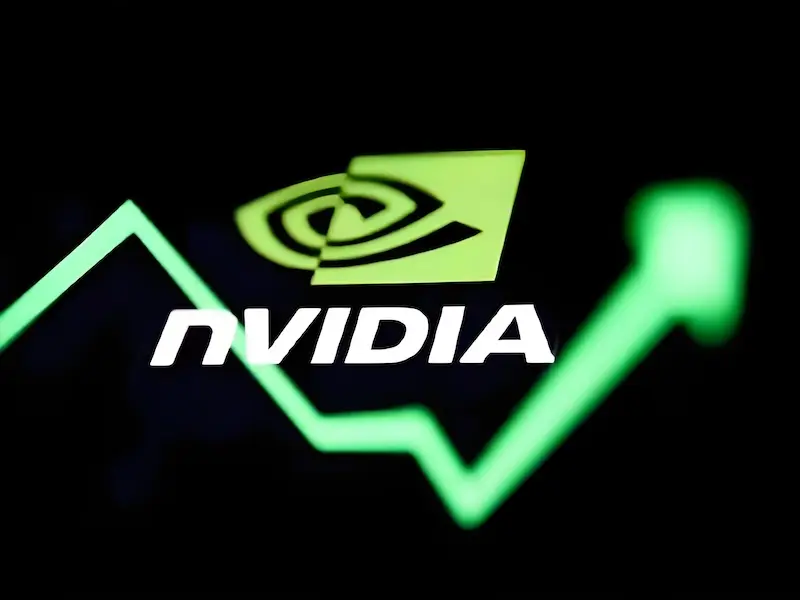- Nvidia’s shares fell 9.5%, wiping out $279 billion in market value amid AI investment concerns.
- The PHLX chip index dropped 7.75%, with Intel down 9%, reflecting broader worries about AI investment returns.
OUR TAKE
This signals a potential cooling of the AI-driven stock market rally that has propelled companies like Nvidia to record highs. Nvidia’s 9.5% drop, resulting in a $279 billion market value loss, reflects investor concerns that AI investments may not deliver the expected returns as quickly as anticipated.
–Jennifer Yu, BTW reporter
What happened
Shares of Nvidia, a leading force in artificial intelligence, plunged 9.5% on Tuesday, marking the largest single-day market value drop for a U.S. company. The tech giant lost $279 billion in market capitalisation, signalling growing caution among investors about the AI sector, which has driven much of this year’s stock market gains.
The PHLX semiconductor index also took a hit, plummeting 7.75%, its steepest decline since 2020. Nvidia’s recent quarterly forecast, which fell short of lofty investor expectations, further fueled concerns.
Intel’s stock also fell nearly 9% following news of potential restructuring, adding to worries about the long-term returns on AI investments. This sentiment has affected other tech giants like Microsoft and Alphabet, whose shares dipped after their July reports.
Also read: Nvidia’s Q2 sales set to double, but any miss could hurt shares
Also read: Nvidia revolutionises food delivery systems in the United States
Why it’s important
Nvidia’s massive $279 billion market value loss reflects a change in investor sentiment. AI, the centrepiece of recent stock market gains, is now facing scepticism as investors question the timeline and profitability of these technologies.
Also, the selloff extended beyond Nvidia, with the PHLX chip index dropping 7.75%, its biggest one-day decline since 2020. This suggests that concerns are not limited to one company but affect the entire semiconductor industry, which is critical to AI development.
Furthermore, the decline followed tepid economic data, indicating that broader economic conditions are starting to weigh on tech stocks. This can impact how tech companies approach their future investments and innovation strategies, particularly in AI.
Other major tech companies, like Intel, Microsoft, and Alphabet, have also been affected by AI-related uncertainty. Intel’s restructuring plans and Microsoft and Alphabet’s stock declines after their July reports indicate that the AI-fueled boom might face challenges across the industry.

